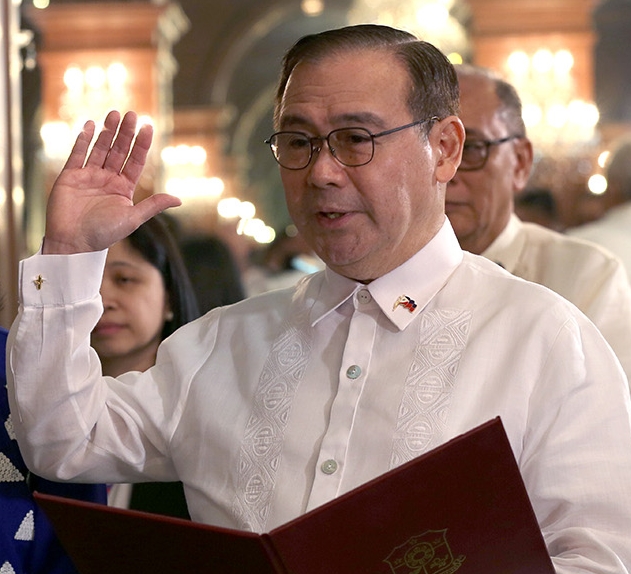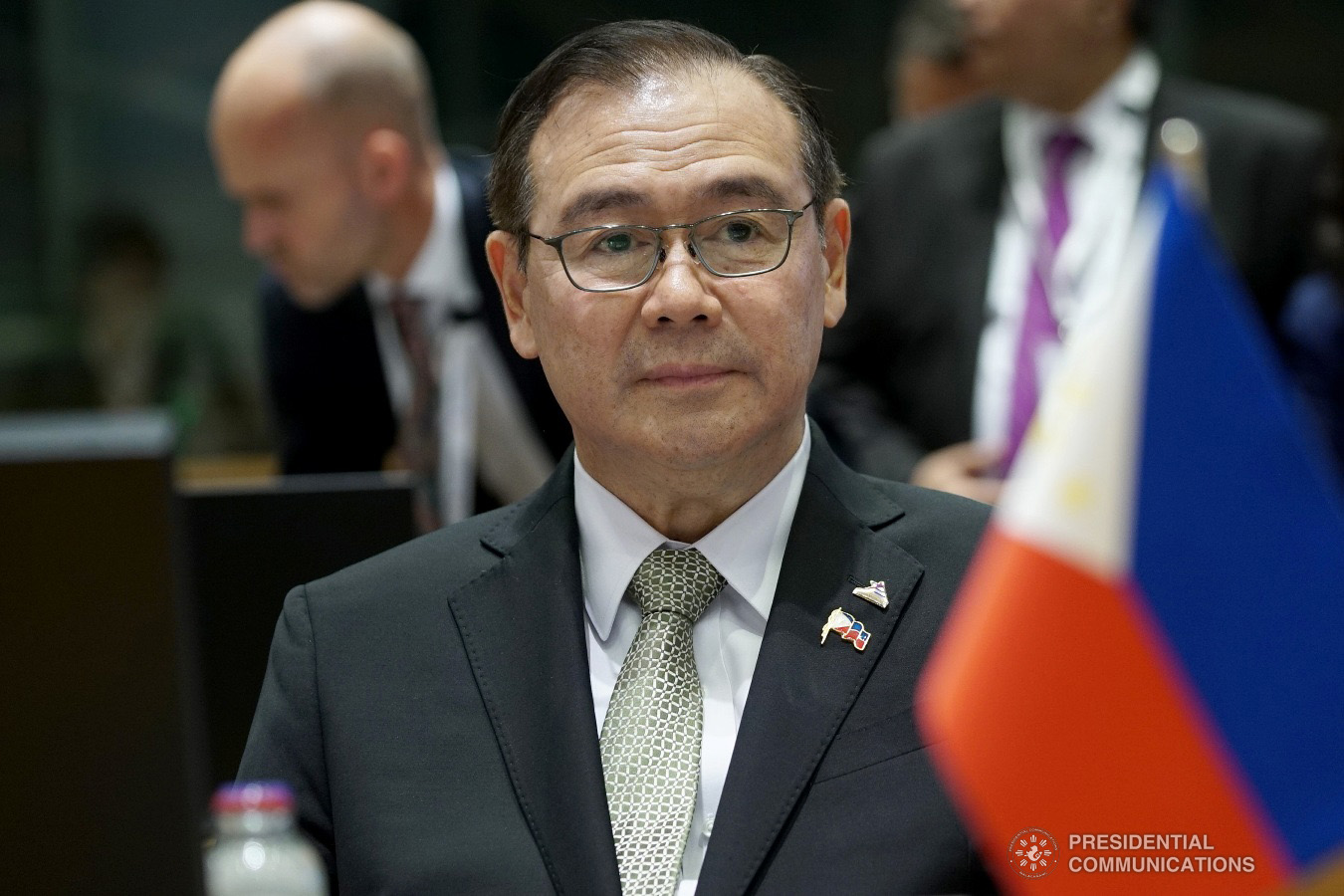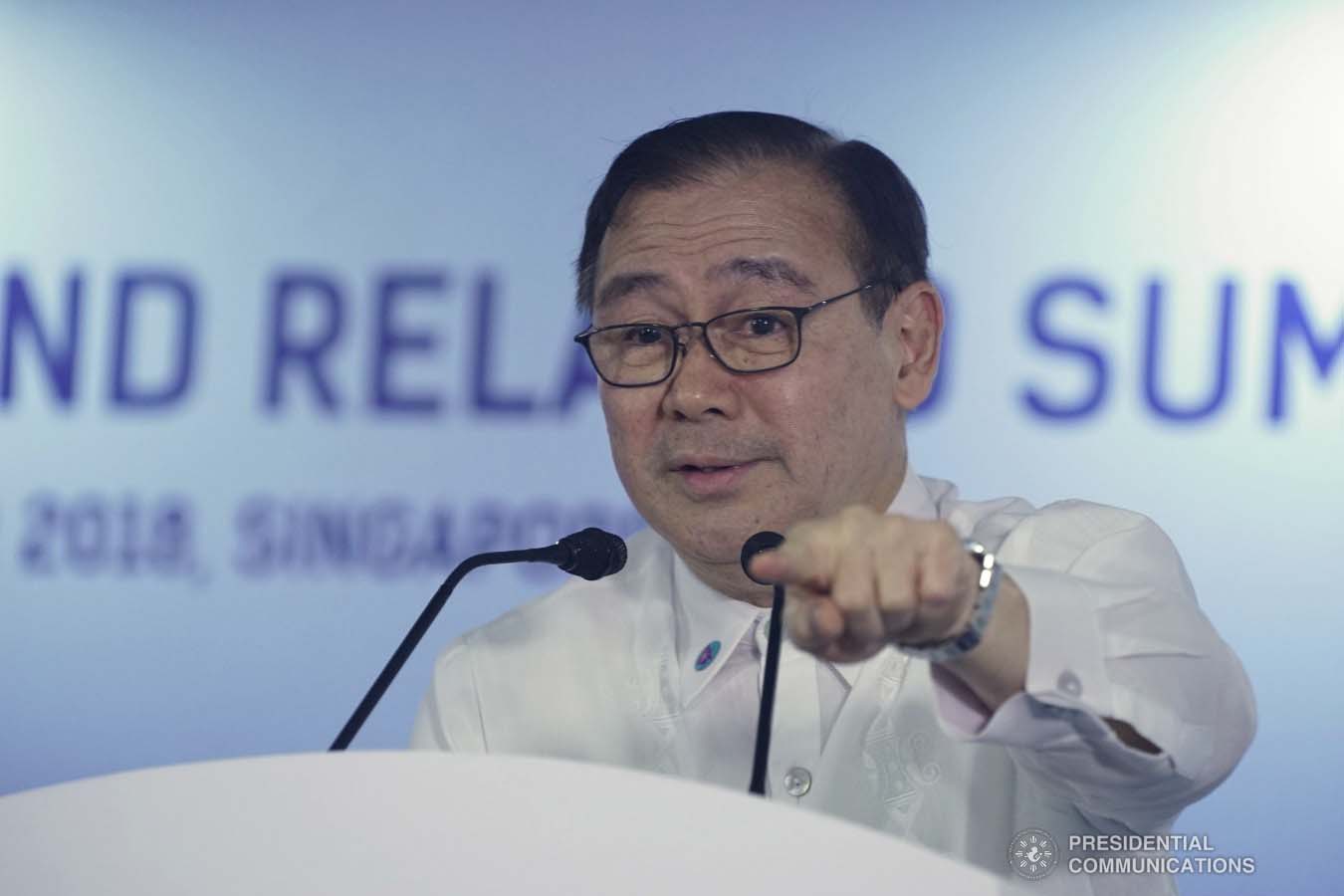Newly appointed Foreign Affairs Secretary Teodoro “Teddy Boy” Locsin Jr., who has tweeted he is “never wrong,” claimed incorrectly in the same post that the United Nations Human Rights Council is a “treaty body.”
STATEMENT
On Oct. 18, a day after he was sworn in as the country’s top diplomat, Locsin posted on his Twitter account:
“I am never wrong but it seems a president can withdraw from a treaty body without senate ratification. Trump withdrew from UN Human Rights Council. No senate vote needed.”
Source: @teddyboylocsin, Oct. 18, 2018
FACT
Locsin’s claim is wrong.
The Human Rights Council, the UN body created in 2006 to protect and promote human rights, is a charter-based body, not a treaty-based one.
“The Human Rights Council and its predecessor, the Commission on Human Rights, are called “Charter-based” as they were established by resolutions of principal organs of the UN whose authority flows from the UN Charter.”
Source: UN Research, UN Documentation: Human Rights
The difference between the two: Charter-based bodies are created through UN resolutions endorsed by UN member countries. Treaty-based bodies are created through treaties signed by countries that may or may not be UN members.
The charter-based UN Human Rights Council reviews the human rights record of all 193 member countries through the Universal Periodic Review and makes recommendations to improve each country’s human rights situation.
The 47-member council elects its members annually, with countries serving for three years on a rotational basis. Seats are allocated equitably by geographical region.
Last June, the United States withdrew from the council over allegations of bias against Israel, a month after the council voted to probe the killing of Palestinian protesters in Gaza, thus cutting short its three-year term that began in 2017. It previously boycotted the council under the Bush administration.
On Oct. 13, the Philippines, along with 17 other countries, was re-elected to serve until 2022 despite strong opposition from human rights advocates over killings in the government’s war on drugs.
Treaty bodies, meanwhile, are composed of independent experts that monitor countries’ compliance with treaty obligations such as in the field of human rights.
A 1997 executive order signed by then President Fidel Ramos defines treaties as “international agreements entered into by the Philippines which require legislative concurrence after executive ratification.”
In March, Locsin, while still serving as the Philippine ambassador to the UN, submitted the Philippines’ withdrawal from the Rome Statute of the International Court (ICC) — an independent judicial body distinct from the UN that has jurisdiction over genocide, crimes against humanity and war crimes. The Philippines signed the Rome Statute on Dec. 28, 2000 and ratified and endorsed it in August 2011.
Lawyers, senators and arguments at the Supreme Court claimed the move to withdraw “has no legal basis” due to lack of concurrence from the Senate. Meanwhile, Locsin in his tweets said he was awaiting the Senate’s ratification of the withdrawal.
He also said it is “pointless” for the Philippines to stay in the ICC since no “serious offensive power” like the US, China or Russia is in it.
Sources
@teddyboylocsin, “PH withdrawal from ICC a completed act,” Sept. 4, 2018
@teddyboylocsin, “I don’t have to. I withdrew because..” Oct. 11, 2018
@teddyboylocsin, “Aggression is a crime..” Oct. 12, 2018
ABS-CBN News, Supreme Court told: PH withdrawal from ICC has no legal basis, Aug. 28, 2018
C-span.org, US Withdrawal from UN Human Rights Council, June 19, 2018
Official Gazette, Executive Order No. 459, s. 1997
Philstar.com, Petitioner insists Senate approval required for ICC withdrawal, Aug. 28, 2018
Rappler.com, Carpio: Duterte cannot withdraw from ICC by himself, Aug. 28, 2018
UN, General Assembly establishes new Human Rights Council by vote of 170 in favour to 4 against, with 3 abstentions, March 15, 2006
UN, General Assembly, by Secret Ballot, Elects 14 Member States to Serve Three-year Terms on Human Rights Council, Oct. 28, 2016
UN, General Assembly Elects 18 Member States to Human Rights Council, Allowing Vote by 3 Member States in Article 19 Exemption over Financial Dues, Oct. 12, 2018
UN General Assembly, Resolution 60/251, April 3, 2006 [Download as Word document]
UN Human Rights Council, Membership
UN Human Rights Council, Basic Facts about the UPR
UN News, Human Rights Council: 5 things you need to know about it, Oct. 15, 2018
UN Research, UN Documentation: Human Rights
UN Research, UN Documentation: International Law
UN OHCHR, Human Rights Bodies
Guided by the code of principles of the International Fact-Checking Network at Poynter, VERA Files tracks the false claims, flip-flops, misleading statements of public officials and figures, and debunks them with factual evidence. Find out more about this initiative and our methodology.)
.




